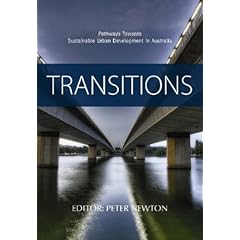ICT Pathway to Sustainable Urban Development in Australia Lost

Formidable problems confront Australia and its human settlements: the mega-metro regions, major and provincial cities, coastal, rural and remote towns. The key drivers of change and major urban vulnerabilities have been clearly identified in the 2006 State of Environment Report: Human Settlements as well as several other national-level reports. They involve the critical domains
of: water, energy, waste streams and transport. Urban development will be an explicit focus for the book. 2006/07 marks the year in which most of the world’s population will live in urban compared to rural environments—one of the key global transitions. Australia was among the first countries to make this transition.As Newton has remarked: “Human Settlements are where all Australians live, where 95% work, and where over 90% of the nations GDP is generated. Their design, planning, construction and operation are fundamental to the productivity and competitiveness of the economy, the quality of life of all citizens, and the ecological sustainability of the continent.”
From: Product Description, Transitions:
Pathways Towards Sustainable Urban Development in Australia, Amazon.com, 2008
Labels: Architecture, CSIRO, Green IT, sustainable development


0 Comments:
Post a Comment
Links to this post:
Create a Link or bookmark with Digg, del.icio.us, Newsvine or News Feed
<< Home